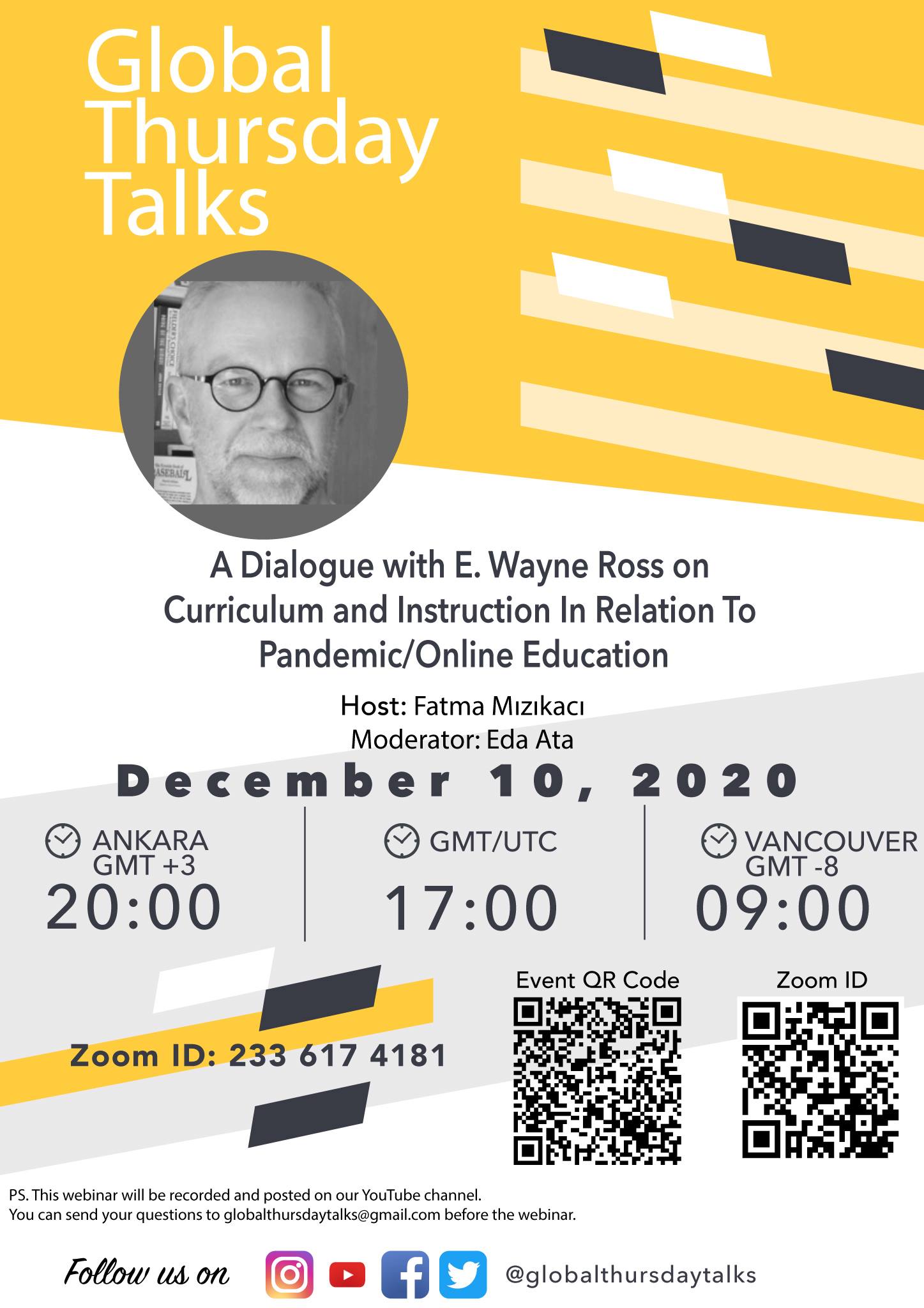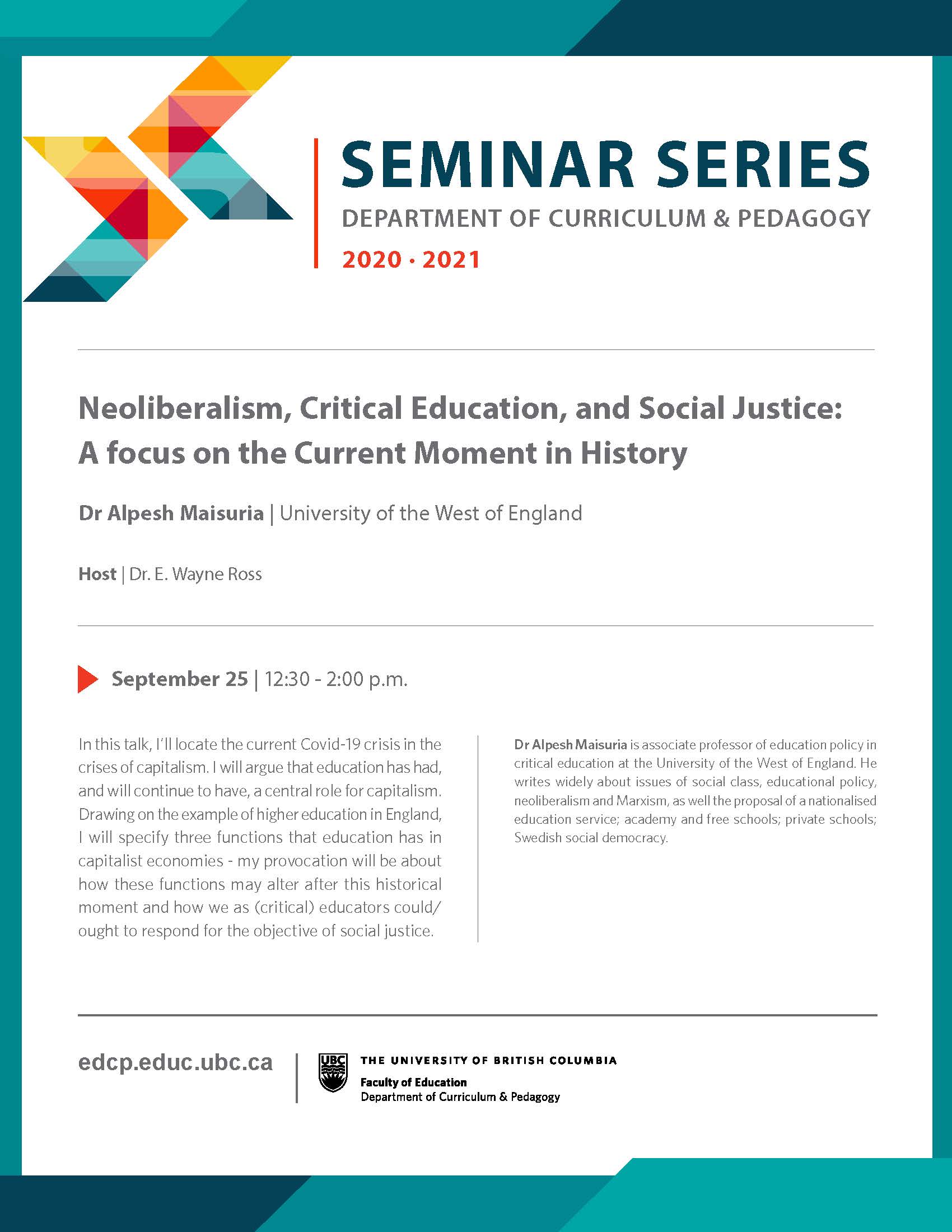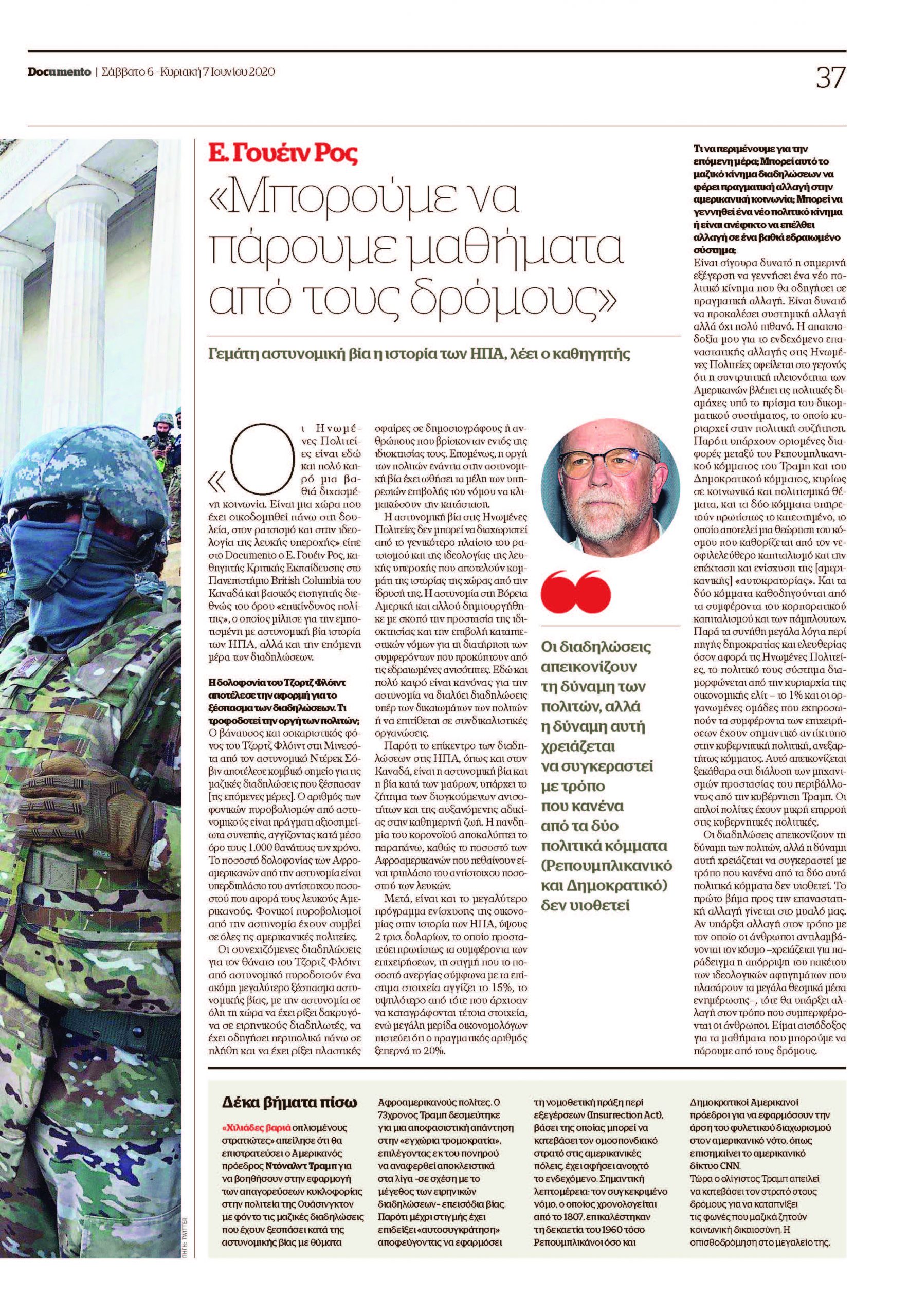Brill has just published the Encyclopaedia of Marxism and Education, edited by Alpesh Maisuria, who is a professor in Education Policy in Critical Education at the University of the West of England, Bristol, UK.
“This encyclopaedia showcases the explanatory power of Marxist educational theory and practice. The entries have been written by 51 leading authors from across the globe. The 39 entries cover an impressive range of contemporary issues and historical problematics. The editor has designed the book to appeal to readers within the Marxism and education intellectual tradition, and also those who are curious newcomers, as well as critics of Marxism.
The Encyclopaedia of Marxism and Education is the first of its kind. It is a landmark text with relevance for years to come for the productive dialogue between Marxism and education for transformational thinking and practice.”
I co-authored, with Sandra Mathison, a chapter titled “Critical Education” for EME. In this chapter we define critical education broadly as a field or approach that works theoretically and practically toward social change that anticipates a post-capitalist world. We explore multiple foundational sources for critical education including Marxism and critical theory, but also democracy and anarchism. And finally, we provide an overview of several manifestations of critical education. While many conflate critical pedagogy with critical education, we contend critical education has a broader reach.
Please contact me if you would like a copy of our chapter on critical education, as I have a limited number of offprints I can share.
Table of Contents
Acknowledgements
List of Figures and Tables
Notes on Contributors
1 Introduction
Alpesh Maisuria
2 The 4th Industrial Revolution, Post-Capitalism, Waged Labour and Vocational Education
James Avis
3 Alienation and Education
Richard Hall
4 Alternatives to Capitalism
Peter Hudis
5 Capital Accumulation and Education
John Fraser Rice
6 Colonialisms and Class
Spyros Themelis
7 Communism: The Party – Pedagogy and Revolution from Marx to China
Collin L. Chambers and Derek R. Ford
8 Corporate State: “Downhill All the Way” – Education in England from Welfare to Corporate State
Patrick Ainley
9 Critical Education
Sandra Mathison and E. Wayne Ross
10 Critical Realism
Grant Banfield
11 Cuban-Marxist Education
Rosi Smith, Leticia de las Mercedes García Rosabal and Maikel J. Ortiz Bosch
12 Dialectical Materialism (Materialist Dialectics)
Constantine (Kostas) Skordoulis
13 Disaster Education
John Preston
14 Early Childhood, Feminism, and Marx
Rachel Rosen and Jan Newberry
15 Employment: Education without Jobs – Young People, Qualifications, and Employment in 21st Century Britain
Martin Allen
16 Ethnography of Education and Marxism: Education Research for Social Transformation
Dennis Beach
17 Freire, Paulo (1921–1997) as a Marxist Revolutionary for Education
Juha Suoranta
18 Gramsci, Antonio (1891–1937): Culture and Education
Peter Mayo
19 Green Marxism
Simon Boxley
20 Guevara, Ernesto “Che” (1928–1967)
Peter McLaren and Lilia D. Monzó
21 Intersectionality: Scaling Intersectional Praxes
Gregory Martin and Benjamin “Benji” Chang
22 Lenin, Vladimir (1870–1924) and Education
Juha Suoranta and Robert FitzSimmons
23 Liberation Theology
Peter McLaren
24 Luxemburg, Rosa (1871–1919) and Education
Julia Damphouse and Sebastian Engelmann
25 Managerialism and Higher Education
Goran Puaca
26 Marxism and Education: [Closed] and … Open …
Glenn Rikowski
27 Marxism and Human Rights against Capitalism
Daniel Hedlund and Magnus Nilsson
28 Marxist Feminism and Education: Gender, Race, and Class
Sara Carpenter and Shahrzad Mojab
29 Middle Classes of the World
Göran Therborn
30 Neo-Liberalism and Revolution: Marxism for Emerging Critical Educators
Alpesh Maisuria
31 New Left, Anarchism and Education
Nick Stevenson
32 Palestine: Education in Mandate Palestine
Bernard Regan
33 Plebs League: Towards a Modern Plebs League
Colin Waugh
34 Postdigital Marxism
Petar Jandrić
35 Poverty: Class, Poverty and Neo-Liberalism
Terry Wrigley
36 Public Pedagogy
Mike Cole
37 Public University: The Political Economy of the Public University
David Harvie, Mariya Ivancheva and Robert Ovetz
38 Social Class: Education, Social Class and Marxist Theory
Dave Hill and Alpesh Maisuria
39 State and Private Capital: Education, State and Capital
Ravi Kumar and Rama Paul
40 World-Systems Critical Education
Tom G. Griffiths
Index





